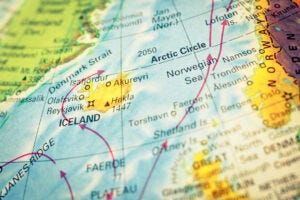
Alvotech’s Humira biosimilar has suffered a setback after the US FDA noted deficiencies relating to its Reykjavik, Iceland manufacturing facility in a complete response letter (CRL).
Alvotech filed AVT02 – a version of AbbVie’s bestselling monoclonal antibody (mAb) Humira (adalimumab) – last year but this week announced the US Food and Drug Administration (FDA) has rejected the initial biosimilar Biologics License Application (BLA), due to issues at its manufacturing plant.
After visiting the facility in Reykjavik, Iceland in March 2022, the Agency “noted certain deficiencies” leading to the issuance of a CRL, according to Alvotech.

Image: DepositPhotos/
twixx
“Alvotech looks forward to addressing the deficiencies outlined in the post-application action letter and continuing to work with the FDA to close out the facility inspection,” Alvotech CEO Mark Levick said in a press release.
“We aim to satisfactorily address the issues before the Biosimilar User Fee Act (BSUFA) goal date for the interchangeable biosimilar BLA in December.”
Despite the setback, Levick is confident AVT02 will be approved and ready for launch in the US on 1st July 2023. This is the date when AbbVie’s patents expire, but if AVT02 is ready for launch Alvotech may find the field crowded with Amgen, Samsung Bioepis, and Sandoz among the biosimilar developers set to bring their versions of Humira to the US market.
In 2021, Humira pulled in US sales of $17.3 billion.
Sustainable positive
During Alvotech’s second quarter 2022 financial call last week, management touted the Reykjavik end-to-end manufacturing facility as a differentiator among its biosimilar peers due, in part, to its sustainability credentials.
“There are limited pure play biosimilar companies that exist and therefore there are limited ways to gain direct exposure to what we believe is the promise of biosimilars,” Ming Li, chief strategy officer at Alvotech.
“The location of our manufacturing site in Reykjavik, Iceland allows access of our main production site to substantial renewable energy resources on an isolated grid. This allows us to easily offset our minimal scope one and two emissions footprint, and thus we have been carbon neutral for scope one and two since 2020.”
Furthermore, Li added the location between the large EU and US markets is “subject to less water scarcity and wildfires, which are two risks that are commonly analyzed within an ESG framework.”
About the Author
You May Also Like

schedl_b_and_w.jpg?width=100&auto=webp&quality=80&disable=upscale)
schedl_b_and_w.jpg?width=400&auto=webp&quality=80&disable=upscale)



